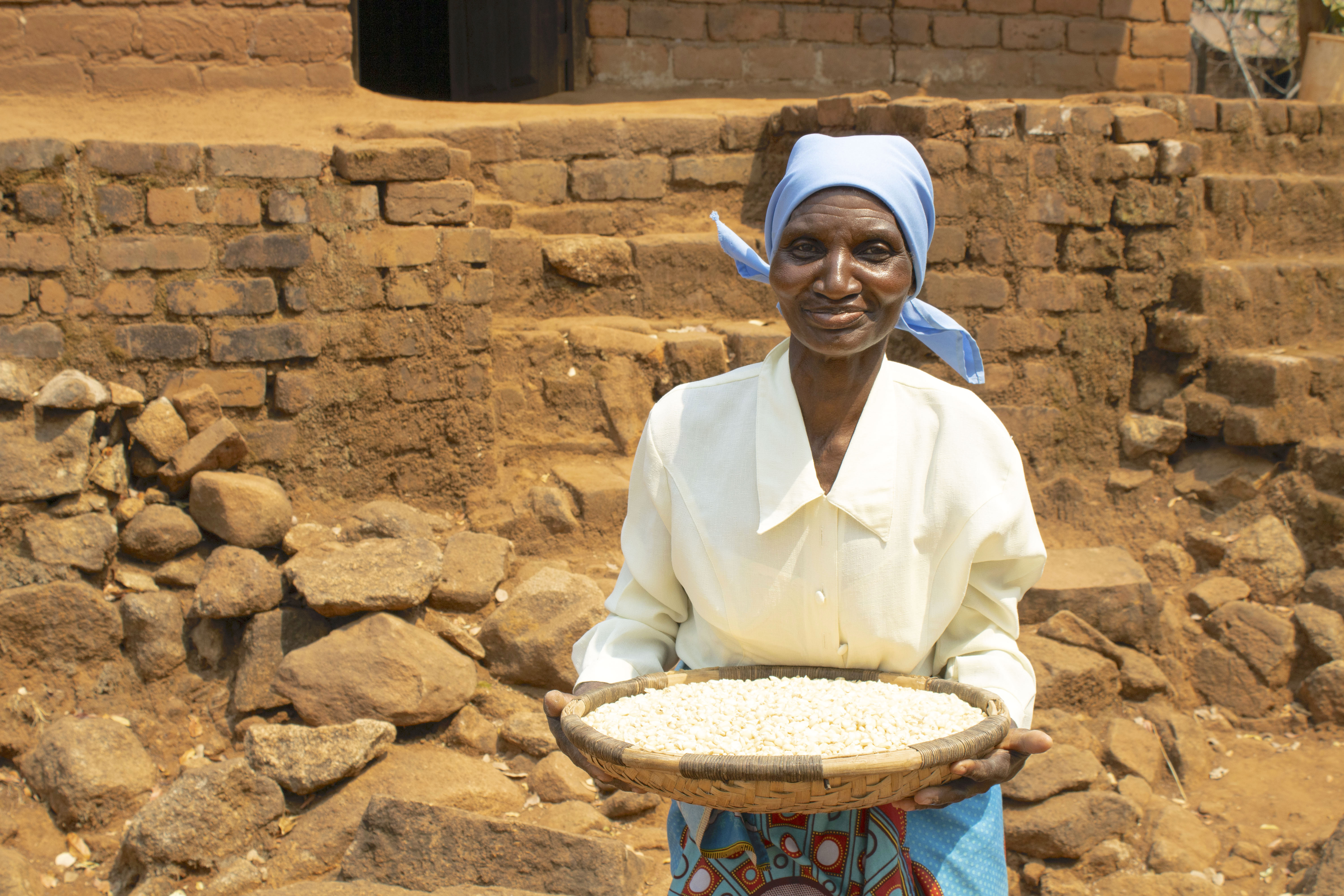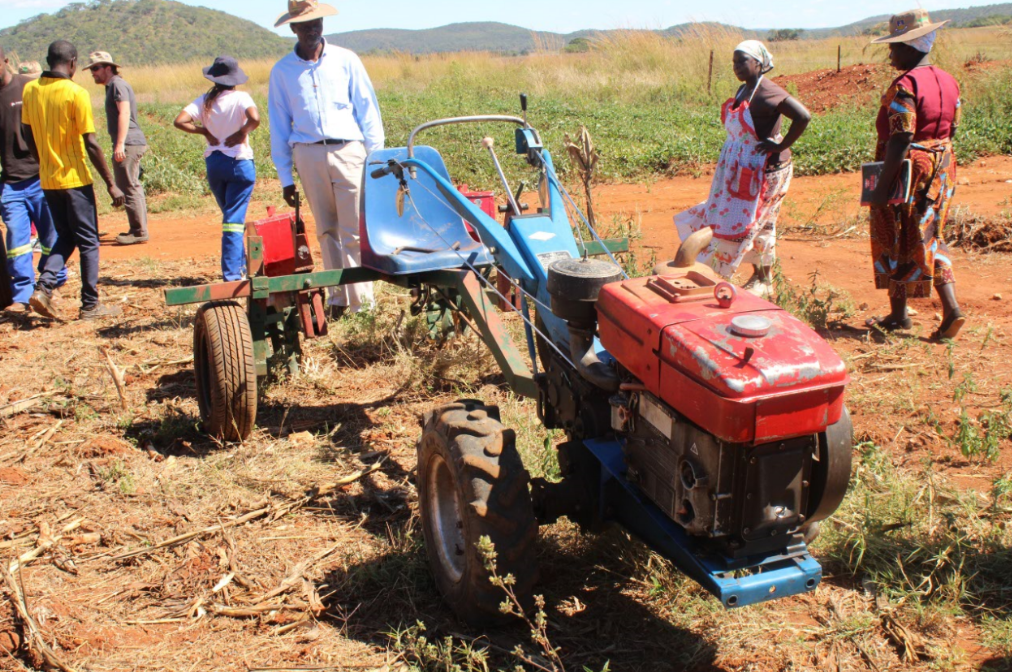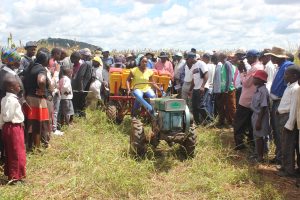
EL BATAN, Mexico (CIMMYT) – Small-scale agricultural mechanization is showing signs it has the potential to fuel rural employment for youth in sub-Saharan Africa, according to researchers at the International Maize and Wheat Improvement Center (CIMMYT).
Across Africa, youth are struggling with high unemployment and working poverty, the International Labor Organization records. However, increased adoption of agricultural mechanization – especially machines that are small, affordable and easy to maintain such as two-wheel tractors – is stimulating jobs and entrepreneurial opportunities for African youth, said Frédéric Baudron, senior systems agronomist at CIMMYT.
“Small-scale mechanization is more equitable than other forms of mechanization as even the poorest and most vulnerable have access to it,” he said.
Youth, along with women, are typically subject to labor intensive farm activities causing them to shun agriculture. But with mechanization improving productivity while reducing drudgery, youth are seeing economic opportunity in agribusiness, on rural farms and as service providers, said Rabe Yahaya, a CIM/GIZ integrated expert specialized in mechanization for sustainable agriculture intensification.
As a result, new jobs along the value chain from mechanics to spare parts providers have been created, he added.
Relatively cheap and easy to operate two-wheel tractors can be used for many different applications. On-farm, the tractors are used to speed up crop establishment while conserving soils through reduced tillage and precision fertilizer application. They allow farmers to tap into surface water for irrigation as well as aid shelling grain to reduce the time taken to get to market. The machinery has also been used to start rural commercial hire and transport services.
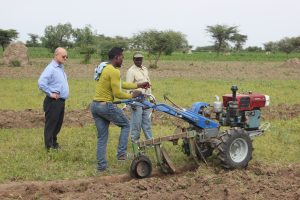
24-year-old Beyene Abebe from Ethiopia is one youth benefiting from mechanization. Through CIMMYT managed training, Abebe has developed the skills needed to become a mechanization service provider. He now provides transportation services for an average of 200 households annually and ploughing services for 40 farmers in his village using two-wheel tractors. With the income from his service, Abebe can cover his family’s expenses and he bought farmland with his savings.
National government support for training and innovation is key to bolster agricultural mechanization throughout Africa, said Baudron. By creating a conductive business environment to attract private sector actors, governments can grease the wheels to scale out success.
Both Yahaya and Baudron shared some insights on the opportunities agricultural mechanization can provide rural communities in the following interview.
Q: Why is it important that agricultural research for development targets youth in rural areas?
RY: A growing population and diet change is increasing food demand in Africa, however, the amount of arable land is decreasing. This affects rural areas, where agriculture remains the main source of income and livelihood. Agriculture in the way it is currently practiced in rural areas is no longer attractive to the new generation of youth as it is labor intensive, rudimentary, risky, unproductive and does not support a good livelihood.
In addition, only 2 percent of Africa’s youth are undertaking agricultural curriculum at the university level. Despite young Africans being more literate than their parents, they suffer from increased unemployment. Agriculture could be the solution in tackling youth unemployment in rural areas, therefore providing peace, stability and food security.
FB: Youth unemployment is growing. Agriculture is perceived as a sector that can absorb much of this unemployment, particularly when combined with entrepreneurship.
In my view, an important issue when tackling issues of sustainable development as opposed to simply ‘development,’ is the issue of equity. We must ensure that the largest amount of people benefit from our interventions. Rural youth represent a large proportion of the vulnerable households in the areas where we work, because they lack capital and other resources, similar to women-headed households.
Q: How is mechanization creating new rural opportunities for youth and women?
RY: In many societies, youth and women are unequally disadvantaged and perform the most labor intensive agricultural activities such as plowing, sowing, weeding, harvesting, shelling, water pumping, threshing and transportation with very rudimentary implements using human and animal power. Therefore, increasing the use of engine power in agriculture will free youth and women from production drudgery discrepancies and most importantly increase farm productivity and consequently improve income generation if an organized value chain exists with a strong private sector involvement.
FB: Mechanization creates rural employment. It creates work for service provider jobs and it also stimulates other businesses along the mechanization value chains. Once demand for mechanization is established, employment opportunities grow for mechanics, fuel providers, savings and loans associations, spare part dealers, etc.
Q: What lessons are there to aid youth to be successful mechanization service providers?
RY: Training in mechanical, agronomic and business skills. Again training and constant follow up is key in order not only to produce successful youth mechanization service provider, but to ensure their continued success. In addition, infrastructure, aftersales — service and spare parts dealerships and financial schemes, promote the adoption of mechanization and support the development of value chain markets are crucial to success.
And remember whatever the technology may be, the farmer has to be able to earn money from it, otherwise they will not use it!
FB: Youth also tend to be better at managing modern technologies. We found consistently, in all countries where we work, that being a successful service provider is highly correlated to be a member of the youth. However, other factors are also important such as being entrepreneurial, educated, able to contribute to the cost of the machinery, and preferably having an experience in similar businesses and particularly in mechanics
Working with CIMMYT’s Farm Mechanization and Conservation Agriculture for Sustainable Intensification (FACASI) project, researchers have sought to promote the delivery and adoption of small-scale machines to make farming practices – including planting, harvesting, water pumping, shelling and transporting – more productive and sustainable in eastern and southern Africa. Funded by the Australian Center for International Agricultural Research, FACASI offers support throughout the supply chain, from importers to manufacturers, service providers and extension workers to ensure mechanization reaches farmers.
CIMMYT’s mechanization team has ongoing collaboration with GIZ/BMZ green innovation center in Ethiopia and works in Namibia with GIZ to provide knowledge, expertise and capacity building on conservation agriculture.
Further information:
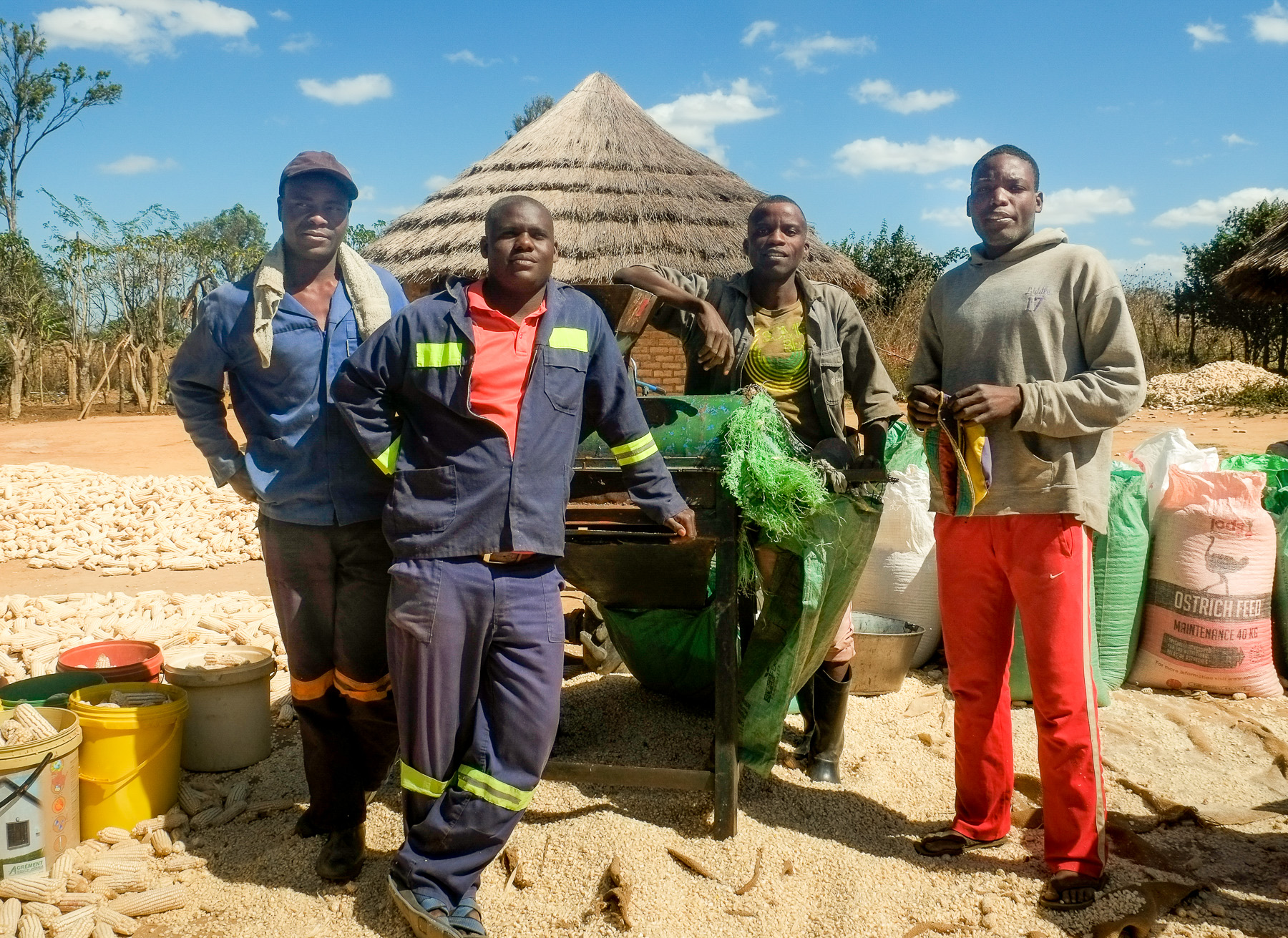
 Capacity development
Capacity development 